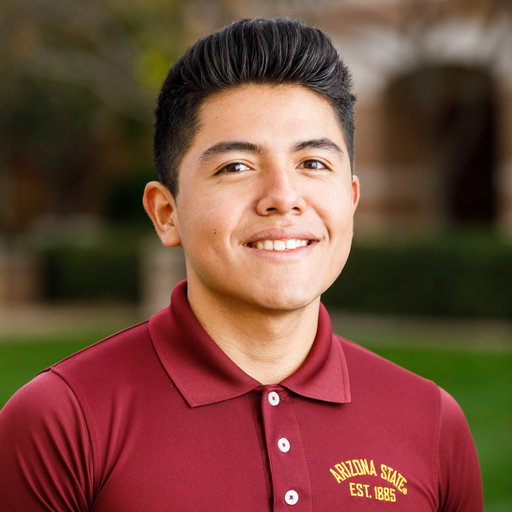A love for biology convinced this ASU grad to go to college
For Manuel Alvarez, the original plan was to not attend college. However, it all changed for the ASU biology grad during his junior year of high school.
“Originally, I wasn’t going to attend college,” said Alvarez, who is from Yuma, Ariz. “But, I had a realization that my life science classes were the only ones I truly enjoyed, so I decided to try it out.”
Once Alvarez enrolled in biology courses at ASU’s West campus, he quickly found opportunities that allowed him to explore his love for the sciences, particularly in research.

Manuel Alvarez’s research in biology and life sciences has taken him across the world, from Washington, D.C. to Finland.
“I participated in a science research conference in Washington, D.C,” Alvarez said. “That was cool because I was able to meet a lot of first-generation students like me, a lot of students and faculty members of color, and I’ve never seen that before. I ended up presenting research and winning third place in the life science category of a competition.”
Currently, Alvarez is working as a molecular technician at a laboratory in Tempe, but after that, he will head up north and attend the genetics program at the University of Wisconsin.
As he prepared to graduate, Alvarez reflected on his ASU experience and shared his advice for current Sun Devils and those joining the ASU family this fall.
Question: What’s something you learned while at ASU — in the classroom or otherwise — that surprised you or changed your perspective?
Answer: It made me communicate my knowledge to other people better. A lot of science is collaborative, and I’m now able to share what I know within my field more efficiently. It also made my work ethic strong and allowed me to become more consistent, because [my field] requires a lot of work and studying, looking for opportunity.
Q: Which professor taught you the most important lesson while at ASU?
A: Dr. Becky Ball. I interviewed with her for a study abroad opportunity and she was the one who opened the door to opportunity for me. She explained the different trajectories I could go in with science and kept up with me throughout my four years at ASU. She always made recommendations when I needed it and was always a reference. She essentially guided me through my entire degree, because I’m first-generation and I didn’t know how to look for opportunities and navigate a lot of obstacles. She really enjoys helping people, and it’s natural for her.
Q: What’s the best piece of advice you’d give to those still in school?
A: I would tell them to just try it. Even if you’re scared about college, you won’t really ever know if you can reach your potential until you try it. A lot of people like you are scared, so you’ll have a team that you can rely on during this process, and you can be scared with them because you’re all in the same struggle. Then, you can find out what your potential means.
Q: What was your favorite spot on campus, whether for studying, meeting friends or just thinking about life?
Q: If someone gave you $40 million to solve one problem on our planet, what would you tackle?
A: I would fund research that addresses environmental remediation. That’s essentially using microbes and genetically modifying them to defeat pollution. I love genetics, but I think there’s a real urgency in addressing climate change. We’re really going downhill and there’s a lot of things that people don’t see.
So I’d fund environmental research or climate change adaptation because somehow, it’s a subject that’s become political and I don’t understand why. Scientists are already working on it, but they don’t receive a lot of money for political reasons.